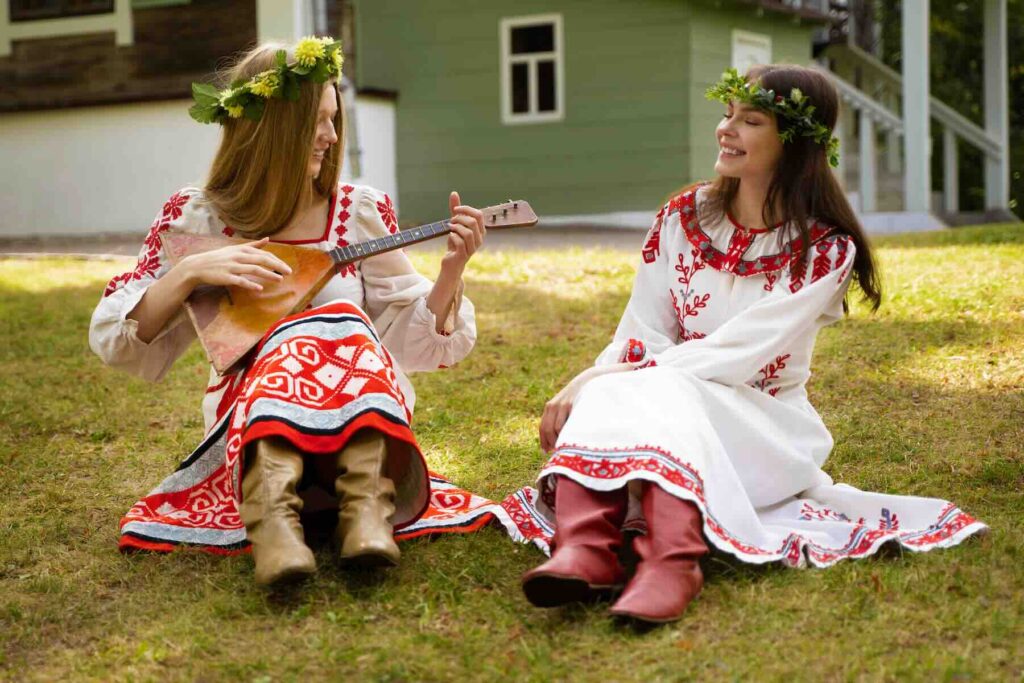Agrafena Glinkina was a woman who brought the folk traditions of the Smolensk region to a wider audience. She didn’t just sing—she preserved and shared the culture of her homeland.
Her contemporaries said that she didn’t simply perform songs, she told them like stories. Her voice was quiet but clear, soulful, and full of depth. Sadly, many folk performers from Russia remain unknown to the general public. But they are the ones who pass down the country's history through music.
So where did it all begin?
Biography's Agrafena Glinkina
Agrafena Ivanovna Glinkina was born on December 29, 1897 (Julian calendar).
She came from the village of Dedyonki in the Monastyrshchinsky district of the Smolensk province. Today, that’s the village of Shvanovo in the Mozhaisk district of the Moscow region. Back then, every region had its own rich folklore—and Smolensk was no exception.
Glinkina collected and remembered the oral folk traditions of her region. She was a talented and multifaceted woman. Although she only finished one year of elementary school, she worked as a local newspaper correspondent.
She was also known as a captivating storyteller and a committed member of her village’s farming collective. Thanks to her energetic personality, she became a true star of Smolensk folk music.

How a Village Woman Became a Folk Star
In the early 1950s, Agrafena Ivanovna sent a letter and recordings of eight songs to a radio station. In 1951, she received an invitation to visit the Folk Music Department at the Moscow Conservatory. That moment marked the beginning of nearly two decades of cultural work.
She recorded over 700 Russian folk songs and actively shared her knowledge with ethnographers and scholars. She performed at concerts and festivals and even gave lectures.
Despite only having a first-grade education, she wrote an autobiography titled “Unfree Childhood.”
Agrafena Glinkina became a phenomenon in the world of Russian traditional singing.
Her Legacy
Agrafena Ivanovna left behind more than just songs. She preserved the cultural identity of Smolensk for future generations.
Her recordings are still used today for inspiration and as educational materials in studying regional history and folk traditions across Russia.
She became a model of traditional Russian singing, and her songs are still performed by folk ensembles. Agrafena Ivanovna Glinkina truly became the voice of her people.
If you want to teach your children about Russian culture and traditions , listening to songs like hers is a great place to start.
🎶 Virtual folklore corner
Listen up: traditional music of the Smolensk region by the ensemble "Tradition"
"I didn't just sing. I was telling a life, in song..."
- Agraphena Glinkina
Tip: Play folk songs to your children so they learn what the history of their home region sounded like.






